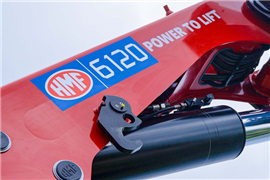Read this article in French German Italian Portuguese Spanish
Securing your business in uncertain times
14 April 2024
All eyes are on the legal horizon. SC&RA’s Joel Dandrea discusses.
As 2024 unfolds, construction and transport professionals will continue to face inflation, supply chain issues, escalating cyber threats and project delays. Additionally, significant shifts in the legal space have caused disruption – from new federal funding mandates to Supreme Court rulings to state-level indemnity clauses. All the more reason for your company, and your legal team, to understand some of the top issues to look out for this year, and explore creative ways to share the risk and adapt to this environment.

Unfortunately, disruptions in fuel prices and materials seem to be around for a while – as new issues like geopolitical tensions and weather-related challenges emerge with greater frequency and broader impact.
One way contractors are dealing with uncertainty is through material-escalation clauses. Without them, it could be impossible for contractors to avoid profit loss. For owners, however, the idea of such a clause may be seen as writing a blank check. But if the contract is based on current prices and any actual increases, rather than a fixed-price quote that builds a hypothetical and speculative price increase, owners may actually save money. Obviously, assuming a price escalation clause can be agreed upon, it’s paramount that such an agreement is carefully drafted. Ultimately, it’s a matter of how much risk the contractor is taking on, and then how much they can recover if something comes up.
As lawsuits are concerned, amid this ever-evolving risk-distribution model threatening to define the times, contractors and owners are butting heads more often on change-order provisions, and it’s leading to an increase in legal disputes that companies should be prepared to address.
In response to the backlog of legal cases in many jurisdictions throughout the U.S., due to COVID, many companies are now turning to arbitration instead of waiting for their case to make its way through the courts – which could literally take years in some instances. While arbitration has plenty of critics, it can also be said that, most of the time (though not always), it’s less expensive than litigation and is often resolved more quickly. And whether everyone agrees or not, there’s finality.
Tech vigilance
Technology will continue to both advance construction and transport in 2024, and cause disruption. As artificial intelligence (AI) and machine learning technologies continue to progress, the hope is that these technologies can avert many of the most common roadblocks and delays. However, both long-standing and developing challenges remain. Many contractors are still struggling to find enough skilled labor – combined with the aforementioned impact(s) of supply chain and cost pressures.
On the tech side, as more and more aspects of projects go digital, cybersecurity and data protection have become a major dispute area for organizations. Adding to the complexity, the full legal risks of technology (and more so, AI) in construction and transport – as well as the ramifications – still aren’t entirely clear, as AI-related claims haven’t necessarily entered the legal system yet.
If nothing else, perhaps the most important consideration for your company is to focus on not landing in legal jeopardy as a result of data mismanagement. In recent years, the construction industry, especially, has been one of the most heavily targeted for cyber-attacks.
Unfortunately, many companies find themselves completely unprepared when they fall victim to such an attack, and are forced to address some hard questions – some of which entail liability concerns related to data mismanagement.
As a result, the more you and your project partners move towards AI and tech-related tools, the more you should remain hyper-aware about what’s going into contracts regarding the safety and security of electronic data shared between participants.
STAY CONNECTED


Receive the information you need when you need it through our world-leading magazines, newsletters and daily briefings.
CONNECT WITH THE TEAM












